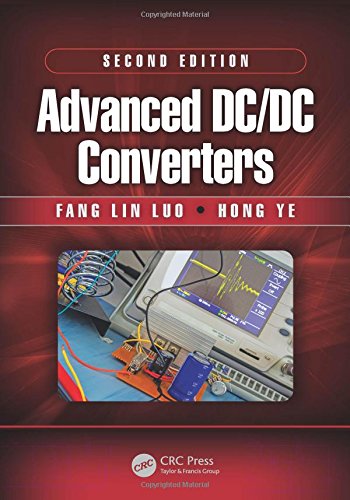

Most ebook files are in PDF format, so you can easily read them using various software such as Foxit Reader or directly on the Google Chrome browser.
Some ebook files are released by publishers in other formats such as .awz, .mobi, .epub, .fb2, etc. You may need to install specific software to read these formats on mobile/PC, such as Calibre.
Please read the tutorial at this link: https://ebookbell.com/faq
We offer FREE conversion to the popular formats you request; however, this may take some time. Therefore, right after payment, please email us, and we will try to provide the service as quickly as possible.
For some exceptional file formats or broken links (if any), please refrain from opening any disputes. Instead, email us first, and we will try to assist within a maximum of 6 hours.
EbookBell Team

5.0
98 reviewsDC/DC conversion techniques have undergone rapid development in recent decades. With the pioneering work of authors Fang Lin Luo and Hong Ye, DC/DC converters have now been sorted into their six generations, and by a rough count, over 800 different topologies currently exist, with more being developed each year. Advanced DC/DC Converters, Second Edition offers a concise, practical presentation of DC/DC converters, summarizes the spectrum of conversion technologies, and presents new ideas and more than 200 new topologies. Beginning with background material on DC/DC conversion, the book later discusses both voltage lift and super-lift converters. It then proceeds through each generation, including the groundbreaking sixth generation―converters developed by the authors that can be cascaded for high voltage transfer gain.
This new edition updates every chapter and offers three new chapters. The introduction of the super-lift technique is an outstanding achievement in DC/DC conversion technology, and the ultra-lift technique and hybrid split-capacitor/inductor applied in Super-Lift Luo-Converters are introduced in Chapters 7 and 8. In Chapter 9, the authors have theoretically defined a new concept, Energy Factor (EF), researched the relations between EF and the mathematical modelling for power DC/DC converters, and demonstrated the modeling method for two converters. More than 320 figures, 60 tables, and 500 formulae allow the reader to more easily grasp the overall structure of advanced DC/DC converters, provide fast access to precise data, and help them to quickly determine the values of their own circuit components.